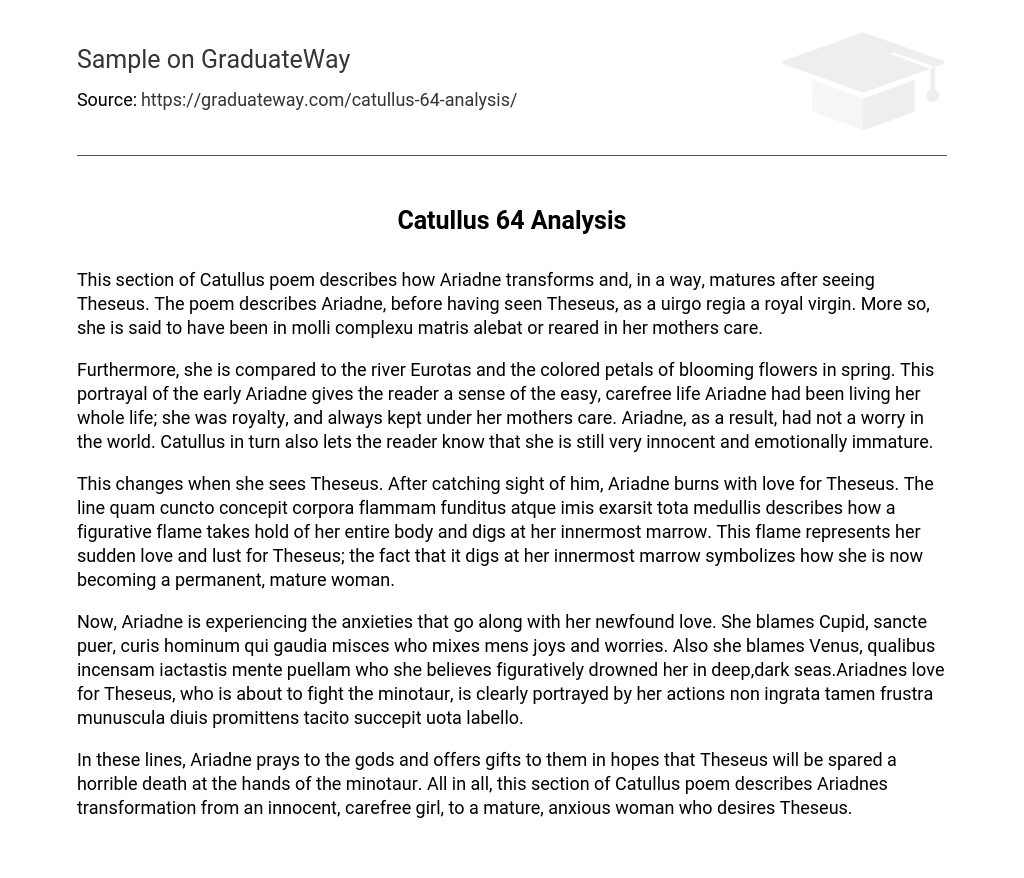In this section of Catullus’ poem, the transformation and maturation of Ariadne after encountering Theseus are depicted. Before meeting Theseus, Ariadne is portrayed as a royal virgin (uirgo regia). Furthermore, the poem states that she was nurtured in the gentle embrace (molli complexu) of her mother.
In addition, she is likened to both the river Eurotas and the vibrant petals of blossoming spring flowers. This depiction of young Ariadne conveys a feeling of the effortless, joyful existence she had experienced thus far. Being of noble lineage, she was constantly under her mother’s protection, allowing her to live a carefree life. Consequently, Ariadne had never known any concerns. Furthermore, Catullus informs the reader that she remains incredibly innocent and emotionally undeveloped.
After seeing Theseus, Ariadne’s emotions undergo a transformation. She becomes consumed by love for him. The phrase “quam cuncto concepit corpora flammam funditus atque imis exarsit tota medullis” illustrates how a metaphorical flame engulfs her entire being and penetrates deep within her core. This flame represents her sudden and intense love and desire for Theseus. The imagery of it digging at her innermost marrow signifies her transition into a fully grown and permanent woman.
Now, Ariadne is experiencing the anxieties that come with her newfound love. She blames Cupid, the sacred boy, who mixes the joys and worries of men. She also blames Venus, who she believes figuratively drowned her in deep, dark seas. Ariadne’s love for Theseus, who is about to fight the minotaur, is clearly shown through her actions. Although not ungrateful, she accepted small promises from the gods and silently expressed her desires with a kiss.
In this section of Catullus’ poem, Ariadne prays to the gods and presents them with gifts in order to save Theseus from a gruesome death at the hands of the minotaur. Overall, the passage depicts Ariadne’s evolution from a naive and carefree girl into a mature and anxious woman consumed by her longing for Theseus.





